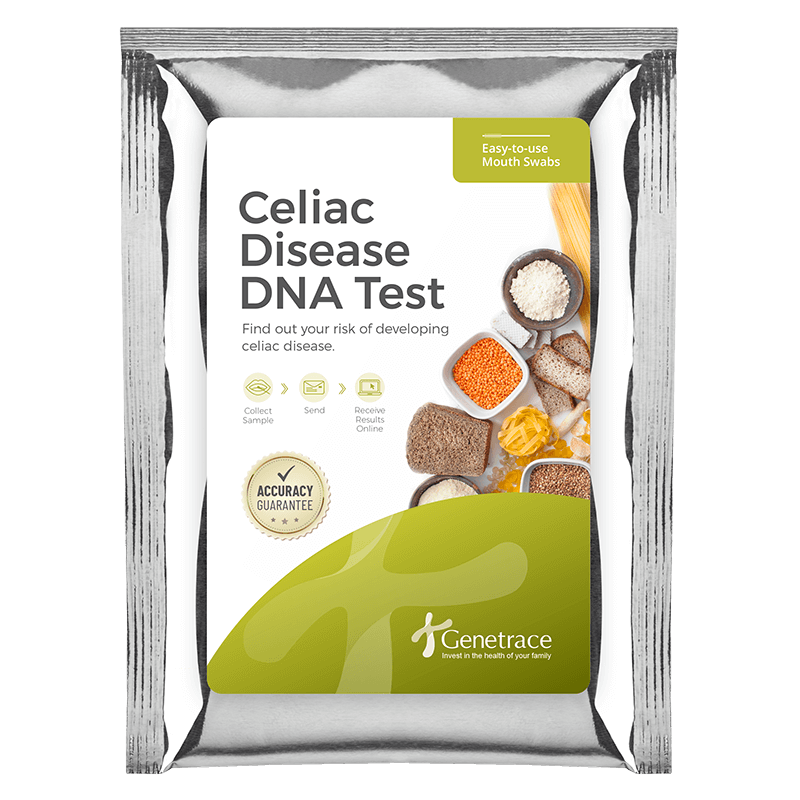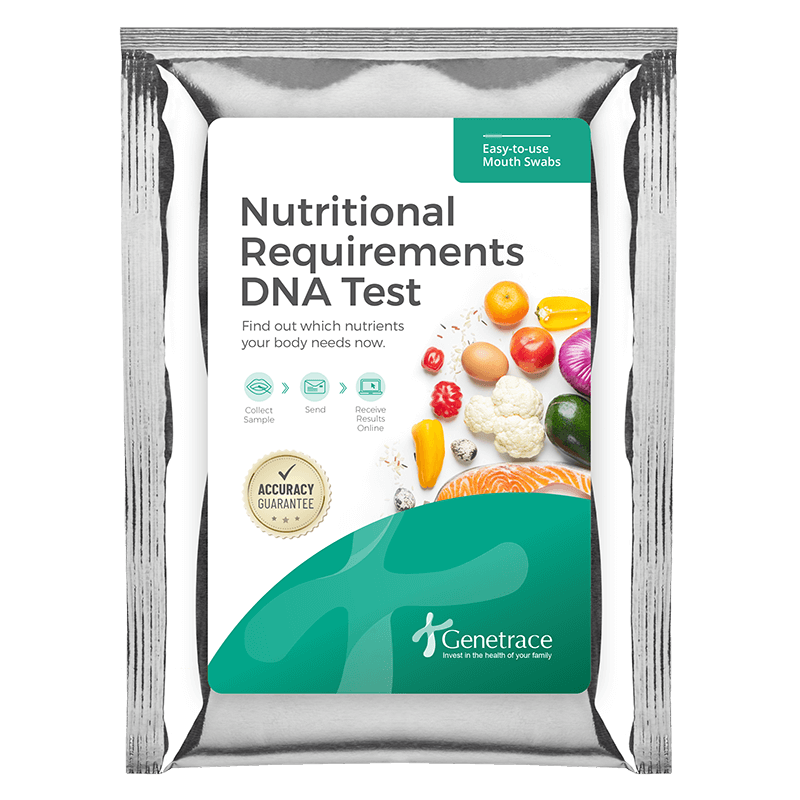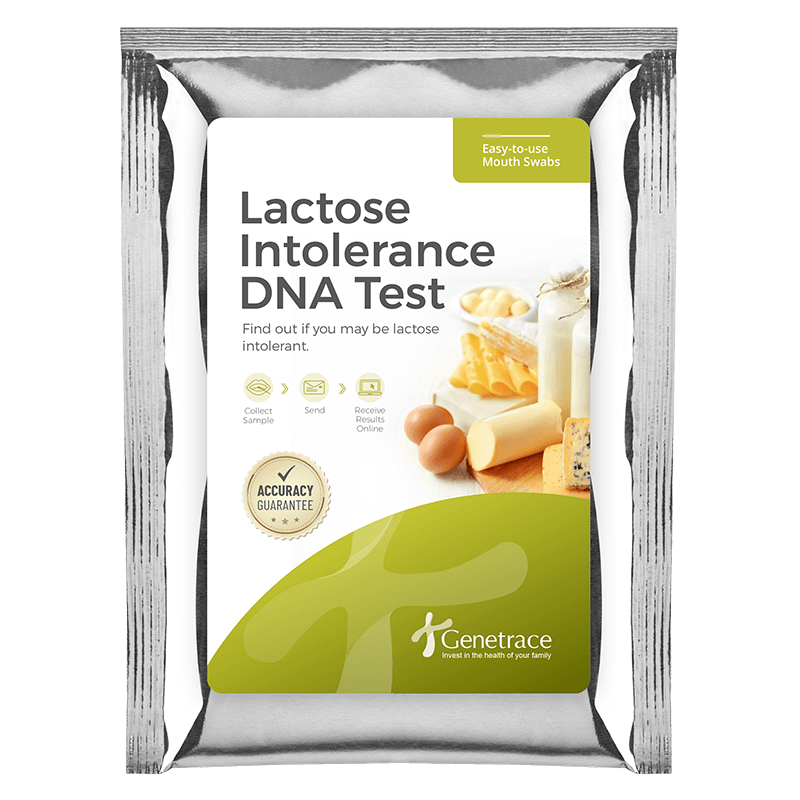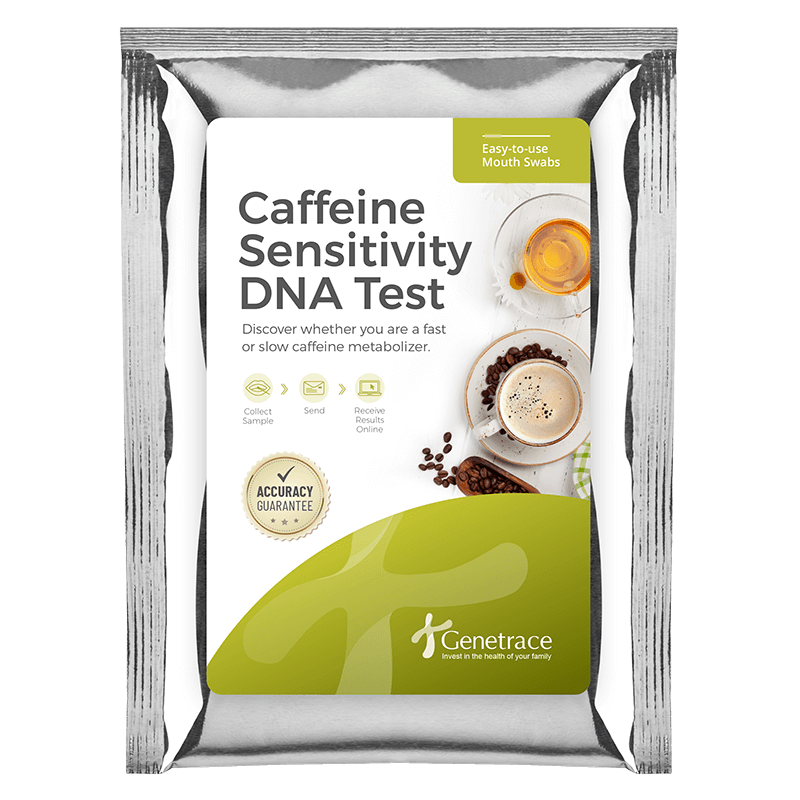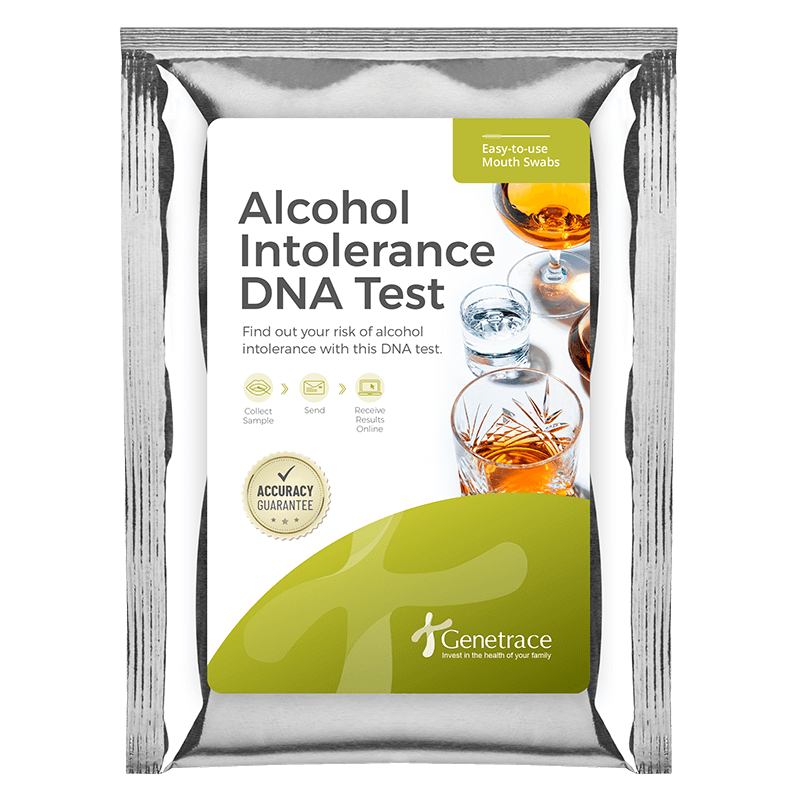Celiac Disease DNA Test
$249.00
Nearly everyone with celiac disease carry at least one genetic risk variant linked to an increased risk of celiac disease. Find out your risk with this DNA test.
Alleles Tested:
- HLA-DQA1*05
- HLA-DQB1*02
- HLA-DQB1*0302
Collection Method: Buccal (Cheek) Swab
- Free shipping both ways
- Easy-to-use cheek swabs
- AABB, ISO17025 & CLIA accredited lab
Kit includes all lab fees and free return shipping to the lab.
Receive secure, confidential results through your online dashboard.
All tests performed in our AABB, ISO 17025 & CLIA accredited laboratory.
Find out if you are at increased risk of developing celiac disease
Celiac disease is an autoimmune disorder in response to the digestion of gluten. Gluten is a protein found in wheat, barley, rye and other grains and is commonly included in many processed and packaged foods. When an affected individual consumes a gluten-containing product, their immune system reacts aberrantly and damages the lining of their small intestine. This severe damage to the villi of the intestine prevents the absorption of vitamins, minerals and nutrients and leads to serious problems.
What are the HLA-DQA1 and HLA-DQB1 Genes?
There are more than 200 HLA genes, which are located on chromosome 6 and encode components of the human leukocyte antigen (HLA) complex. The HLA complex is an important part of the immune system, helping distinguish between harmless proteins (from self, diet or environment) and harmful foreign proteins from viruses and bacteria. The protein encoded by the HLA-DQA1 and HLA-DQB1 genes form a complex together to display foreign proteins to the immune system in order to trigger a response against the foreign invader. This HLA-DQA1 + HLA-DQB1 complex is also important to develop self-tolerance in children. However, in celiac-affected people, this complex also binds to and displays the harmless gliadin fraction from gluten, initiating an aberrant immune response.
- Age Limit: None. This test can be taken at any age.
- Collection Method: Buccal swabs. The test kit contains buccal swabs and instructions for collecting a buccal swab sample from inside the mouth.
- Alleles Identified: HLA-DQA1*05 HLA-DQB1*02 HLA-DQB1*0302
- Testing Methodology: Sequence Based Typing (SBT)
- Kit Expiry: DNA test kits do not have an expiry date and can be used at any time. Once the DNA sample is collected, it must be returned to the laboratory for testing within three months of collection. No refrigeration is required. Store at room temperature.
- Limitations It is important to remember that the presence of one or more of these at-risk alleles (HLA-DQA1*05, HLA-DQB1*02, HLA-DQB1*0302) does not mean that an individual will definitely develop celiac disease. Each allele does increase the risk but there are many individuals that have these alleles and never develop celiac disease. Alleles other that HLA-DQA1*05, HLA-DQB1*02 and HLA-DQB1*0302 will not be identified. An increased risk of celiac disease and an accurate diagnosis are also dependent on a variety of genetic and non-genetic factors that are not detected by this assay.
Summary
Find out if you are at increased risk of developing celiac disease
Celiac disease is an autoimmune disorder in response to the digestion of gluten. Gluten is a protein found in wheat, barley, rye and other grains and is commonly included in many processed and packaged foods. When an affected individual consumes a gluten-containing product, their immune system reacts aberrantly and damages the lining of their small intestine. This severe damage to the villi of the intestine prevents the absorption of vitamins, minerals and nutrients and leads to serious problems.
What's Measured?
What are the HLA-DQA1 and HLA-DQB1 Genes?
There are more than 200 HLA genes, which are located on chromosome 6 and encode components of the human leukocyte antigen (HLA) complex. The HLA complex is an important part of the immune system, helping distinguish between harmless proteins (from self, diet or environment) and harmful foreign proteins from viruses and bacteria. The protein encoded by the HLA-DQA1 and HLA-DQB1 genes form a complex together to display foreign proteins to the immune system in order to trigger a response against the foreign invader. This HLA-DQA1 + HLA-DQB1 complex is also important to develop self-tolerance in children. However, in celiac-affected people, this complex also binds to and displays the harmless gliadin fraction from gluten, initiating an aberrant immune response.
Technical Information
- Age Limit: None. This test can be taken at any age.
- Collection Method: Buccal swabs. The test kit contains buccal swabs and instructions for collecting a buccal swab sample from inside the mouth.
- Alleles Identified: HLA-DQA1*05 HLA-DQB1*02 HLA-DQB1*0302
- Testing Methodology: Sequence Based Typing (SBT)
- Kit Expiry: DNA test kits do not have an expiry date and can be used at any time. Once the DNA sample is collected, it must be returned to the laboratory for testing within three months of collection. No refrigeration is required. Store at room temperature.
- Limitations It is important to remember that the presence of one or more of these at-risk alleles (HLA-DQA1*05, HLA-DQB1*02, HLA-DQB1*0302) does not mean that an individual will definitely develop celiac disease. Each allele does increase the risk but there are many individuals that have these alleles and never develop celiac disease. Alleles other that HLA-DQA1*05, HLA-DQB1*02 and HLA-DQB1*0302 will not be identified. An increased risk of celiac disease and an accurate diagnosis are also dependent on a variety of genetic and non-genetic factors that are not detected by this assay.
Explore your DNA Story
Embark on a journey of self-discovery with our at-home DNA tests, powered by cutting-edge science made accessible for all.
Simple Sample Collection
Secure Online Results
Accredited Laboratory
Discreet & Confidential
How it works
Purchase your kit
Collect DNA Sample
Mail samples to the lab
Receive your results
FAQ's
Here are the answers to the most frequently asked questions about this test.

